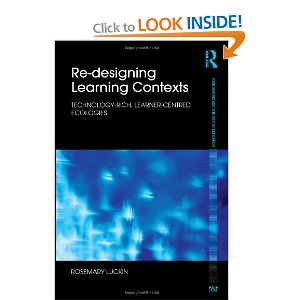 I am curious about knowledge, not in philosophical sense, but in a practical one. I worry about what it means to know something in a world that is increasingly complex, ill defined and interconnected: a world that demands that we develop, and that we ensure that our children develop, the knowledge capacity to solve the problems it manifests and those that we create.
I am curious about knowledge, not in philosophical sense, but in a practical one. I worry about what it means to know something in a world that is increasingly complex, ill defined and interconnected: a world that demands that we develop, and that we ensure that our children develop, the knowledge capacity to solve the problems it manifests and those that we create.
The first recollections that I have of my own curiosity about knowledge date back to 1966 when I was eight years old and growing up in Manfred Mann’s semi-detached suburbia: dad, mum, older brother and me. My father was an aircraft engineer and my mother taught typing and shorthand to women whose working lives were about to be dramatically changed by the word processing power of the digital computer. My brother was 3 years older than me, and his lack of interest in formal education was causing my parents some concern. Their reaction was to invest in ‘knowledge books’, or at least that’s how they saw the children’s book of knowledge and the encyclopedia that now filled up the bureau bookshelf. To keep us up to date, there was also the weekly general knowledge magazine that plopped on the doormat with a reassuring thud: the weight of its knowledge there for all to hear.
I suspect that my parent’s reaction to their son’s educational malaise was not an unusual one amongst the aspiring middle class families of our neighbourhood. My brother’s reaction to the new literary arrivals was cool; he was far more concerned with exploring the world of the woodland around our housing estate, than with sitting at home and reading about it. My father however, became quite addicted to the weekly general knowledge magazine. He did not have a great deal of time to read, but each evening when he went to bed he would sit in his paisley pyjamas and thumb through the pages. The stock of copies soon grew on the nightstand as his pace of reading failed to match the frequency of their arrival. The corners became slightly curled as the months and years passed and the dust gathered in and around the pile that now extended from the nightstand to the floor. His interest never waned and I do believe there were a pile of old issues by his bedside when he died many years later.
Forty years on and it’s a sunny day and I’m walking along the Euston Road in London. I pass the entrance to the British Library and a sign catches my eye, the sign says: “Step inside – Knowledge freely available”. I dislike the suggestion that one can walk into the British Library and just pick up some knowledge like going into Tesco and buying some bananas. I can relatively quickly formulate an explanation for myself about why the sign irritates me, because I have a clear idea about what I believe knowledge to be. I have moved on from the conception of knowledge loved by my father and represented by the pages of his books and articles. I know that I have to construct knowledge from the evidence available to me, that it is not handed to me by others, though they can certainly help me along the way, and that I can aspire to continually increase my knowledge by weaving together the information resources distributed throughout my world.
This is not the case for many of the youngsters who attend our schools and colleges. For them knowledge is still to be found in the dusty concepts in the out of date magazines on my father’s nightstand or on the shelves of a library they never visit.
“But what of the internet and world wide web?” I hear you wonder. These technological masterpieces offer information resources wherever we are and whenever we need them. These must surely pave the way for us to become more knowledgeable, both personally and as a human community?
The sheer abundance of this information has thrown into sharp relief our understanding of the relationship between information and knowledge. It makes my modest collection of childhood encyclopedias and my father’s overflowing magazine collection look like a speck of dust on the library shelf. I fear however that our understanding of what knowledge is and what it means to know something has not progressed in tandem with this technological progress. This puts us at risk of succumbing to the illusion that we know more than we actually do, because the more information we have the more we become certain that we know something.
Without helping young people to develop an understanding of what knowledge is in a digital age they cannot progress beyond the well meaning, but limited conception of knowledge promoted by the books and magazines that appealed to my parents. Those of us who understand what we mean by knowledge can indulge ourselves, as my father did with his magazines. But, without actively engaging people in the excitement of connecting the knowledge construction process to their own particular context, we merely encourage them to pass the opportunity by in the same way as my brother did all those years ago.
In a time of information plenty we are at risk of a knowledge famine.
I wrote thsi piece originally for Learning to Live – Creativity, Money and Love

 I had a fascinating discussion with Alasdair Blackwell from
I had a fascinating discussion with Alasdair Blackwell from 


